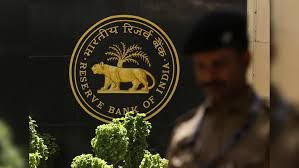RBI Digital Payments Index (DPI)

- 05 Feb 2025
In News:
The Reserve Bank of India’s (RBI) Digital Payments Index (DPI) rose to 465.33 as of September 2024, up from 445.5 in March 2024, indicating a sustained increase in the adoption and penetration of digital payments across India.
About the RBI-DPI
- Launched: January 2021
- Constructed by: Reserve Bank of India
- Purpose: To measure the extent and progress of digitisation of payments in India.
- Base Period: March 2018 (DPI Score = 100)
- Frequency of Publication: Semi-annually (March and September)
Significance of the Index
- Acts as a quantitative tool to monitor India’s progress in achieving a less-cash economy.
- Provides stakeholders, policymakers, and researchers a composite view of digital payment trends.
- Helps identify policy focus areas and gaps in digital infrastructure and adoption.
- Supports the goals of financial inclusion, innovation, and digital public infrastructure.
Recent Trends
- September 2024 DPI Score: 465.33
- March 2024 DPI Score: 445.5
- Implication: Demonstrates continued momentum in digital payment adoption, driven by improved payment infrastructure and payment performance nationwide.
Structure of the RBI-DPI
The index is composed of five broad parameters, each with defined weightages and sub-indicators:
Parameter Weightage Description
1. Payment Enablers 25% Internet/mobile penetration, bank account ownership, Aadhaar usage.
2. Payment Infrastructure – Demand Side 10% Number of debit/credit cards, user demand for digital options.
3. Payment Infrastructure – Supply Side 15% Availability of POS machines, ATMs, bank branches, QR codes.
4. Payment Performance 45% Actual volume and value of digital transactions, currency usage trends.
5. Consumer Centricity 5% Digital payment awareness, fraud prevention, grievance redressal.
Each parameter is further broken down into measurable sub-indicators, offering a comprehensive framework for assessment.
Why RBI-DPI Matters for India
- Digital Transformation: Encourages the shift from cash to digital payments, aligning with the goals of Digital India.
- Policy Impact Assessment: Evaluates the effectiveness of regulatory and policy interventions in the payment ecosystem.
- Infrastructure Development: Reflects the outreach of digital payment infrastructure, aiding targeted investments.
- Financial Inclusion: Helps assess how digital modes are reaching the underserved and unbanked populations.
- Data-Driven Governance: Facilitates evidence-based decision-making in financial sector reforms.
